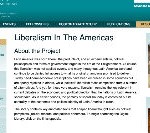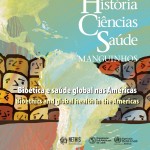Apr 2015

Group of the specialization in professional education in health, Maputo 2011 (Courtesy EPSJV/Fiocruz).
The article “Fiocruz as an actor in Brazilian foreign relations in the context of the Community of Portuguese-Speaking Countries: an untold story“, written by Alejandra Carrillo Roa and Felipe Ricardo Baptista e Silva, researchers at the University of Brasilia (UNB), analyzes how Fiocruz’s technical expertise resulted in its direct involvement in Brazilian foreign public health policy in the Community of Portuguese-Speaking Countries.
International health cooperation between Brazil and the members of the Community of Portuguese-Speaking Countries (CPLP) is based on a long foreign policy process focused specifically on Africa. This process is related to changes in the global outlook since the Cold War that created conditions for stronger ties between the countries in question and, subsequently, the establishment of the CPLP.

Community gathering during the inauguration of a health center in a rural area, first Fiocruz PALOP mission, in Guinea-Bissau, 1997 (Courtesy of Paulo Sabroza, Ensp/Fiocruz, and Júlio César F. Lima, EPSJV/Fiocruz)
In this context, the Oswaldo Cruz Foundation (Fiocruz), as an institution with a well-known tradition and technical expertise in public health, became involved in international cooperation with CPLP countries.
For example, in the pharmaceutical area, Fiocruz, through the Drug Technology Institute (Farmanguinhos), leads an unprecedented international cooperation project to transfer Brazilian technology: The Antiretroviral Factory in Mozambique that aims to reduce Mozambican dependence on foreign drug donors, especially drugs to treat HIV/Aids.

Student from Angola in the Tropical Medicine Master Program in IOC (Oswaldo Cruz Intitute), Rio de Janeiro 2008 (Courtesy IOC/Fiocruz).
It is important to contextualize Brazil’s relationship with the CPLP in Brazilian diplomatic history, as it is through this channel that Fiocruz found opportunities through which to become involved in BFP, promoting international health cooperation projects. As the authors discuss in the article, the establishment of the CPLP was the result of a long, historical process in Brazilian foreign policy with respect to Africa, with this process beginning in the 1960s in the time frame adopted in this study.
Read more:
International cooperation in health: the case of Fiocruz – The article reviews the trajectory of international cooperation and the approach taken by Fiocruz, the so called “South-South Cooperation”.








